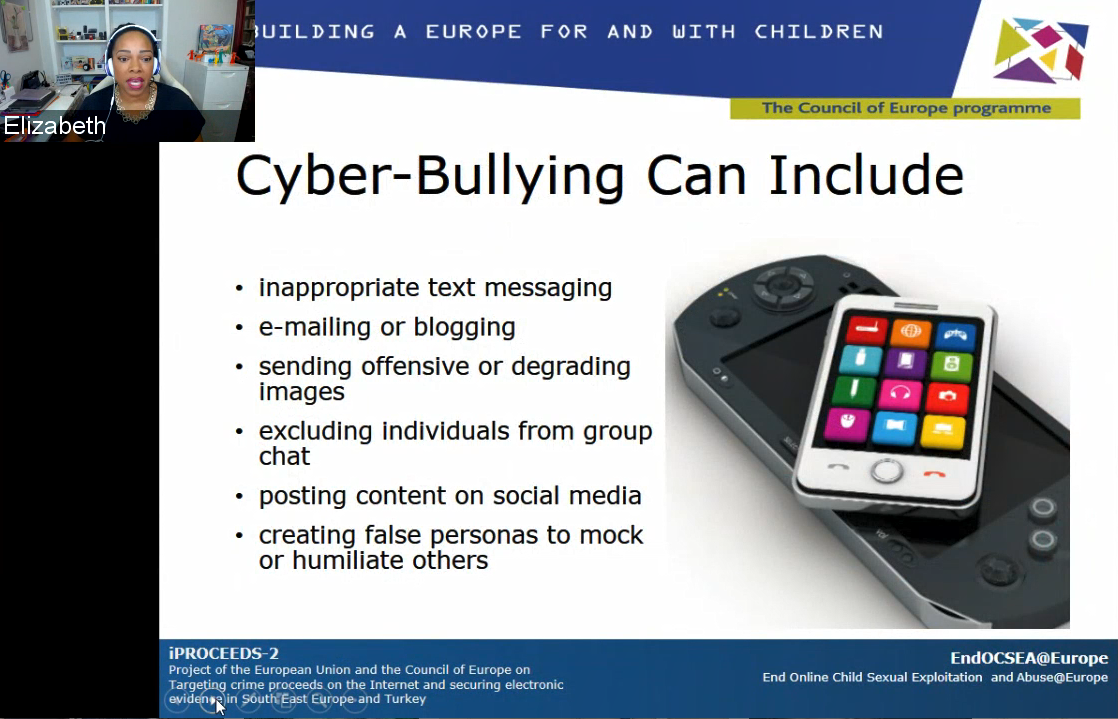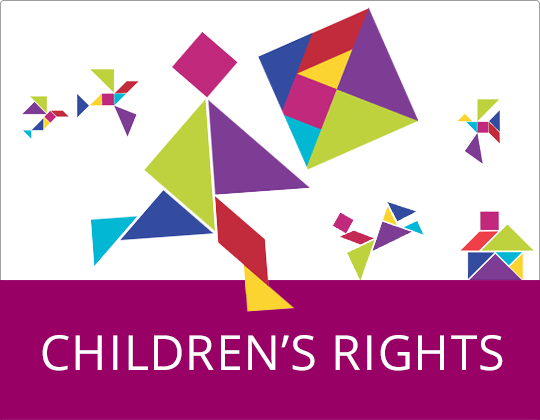Under the framework of the Council of Europe Projects to End Online Child Sexual Exploitation and Abuse @ Europe (EndOCSEA@Europe) and the Project iPROCEEDS-2, Elizabeth Milovidov, Andrea Bradley, Nina Vaaranen-Valkonen and Susanna Greijer, Council of Europe international experts, led an online webinar on 9 March 2021 on Cyber-Bullying: Trends, Prevention Strategies and the Role of Law Enforcement.
The purpose of this activity was to analyse the causes, effects and preventive measures of cyber-bullying, defined, as a “repetitive, intentional action which hurts somebody physically, psychologically or emotionally” and that “takes place ‘virtually’ via mobile devices like phones and tablets and/or takes place through online social networks and on gaming sites” (Elizabeth Milovidov).
The four experts provided an interdisciplinary approach of cyber-bullying and victimisation from sociological, psychological, legal and law enforcement perspectives, arguing that the effects of this phenomenon on children and young adults include weaker offline social ties and support from friends and family, loneliness, difficult relationships at school, and lower psychological well-being. Another key topic discussed was the link between cyber-bullying and sexualised intimidation or violence, with a focus on how cyber-bullying often transmutes into online child sexual exploitation and abuse (OCSEA), highlighting also that victims of such crimes are younger and younger.
The experts stressed the importance of education and age appropriate information in combatting cyber-bullying and promoted the use of the Lanzarote Convention and the Budapest Convention as legal instruments which can increase the protection to children who fall victims of these crimes.
The event was attended successfully by over 180 participants worldwide, including judges, prosecutors, criminal investigation officers, psychologists, educators, representatives of relevant ministries, and representatives of civil society organisations, working in the area of OCSEA.
Acknowledgements:
The Council of Europe gratefully acknowledges the financial support provided for this programme by the End Violence Fund.




